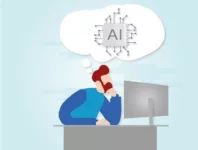Robots may not quite be taking over the world like many doomsday films have predicted over the years, but it’s clear that the power of AI is accelerating rapidly. ChatGPT and DALL-E-2 are two of the most high-profile examples, and as the technology continues to develop at breakneck speed, more and more jobs are prone to automation.
PwC predicts that almost a third of jobs are at risk of automation by the mid-2030s. While those relying on human touch and social interaction are less in danger — think healthcare and education roles, for instance — one industry that is particularly susceptible to AI’s evolution is, ironically, the tech sector itself.
However, there are some tech jobs that will almost certainly be more resistant to automation. Here are three examples:
1. SAP consultants
Used by hundreds of thousands of companies globally, including the likes of Coca-Cola, BP, and Audi, SAP’s flagship enterprise resource planning (ERP) system has become synonymous with effective business management.
The technology helps businesses to organise everything from their finance to their HR processes, and is so widely used that SAP is now an industry in its own right.
Consultancy is the most common career in this field, with such individuals helping businesses implement, use and maintain their SAP solutions. According to SAP recruitment company Eursap, being a SAP consultant “offers challenging work, teaching cross-transferable skills and offering on-the-job learning. It is well-paid, in demand, and offers great career progression opportunities.”
And while it may sound like this role is vulnerable to automation considering it involves tasks like data processing, there are many aspects where the human touch is required. These include assessing a business’s ERP needs, staying up to date with SAP trends to offer the best solutions, and managing a project from start to finish.
2. Software developers
Software developers design, develop and test new software. Among their main duties are creating code for both new and existing applications and systems, performing maintenance on existing software, and liaising with clients, project managers, and other individuals about the status of development.
As Indeed notes: “Becoming a software developer offers ample opportunity for career growth, and there is a steadily increasing demand for the role as a result of an increasingly digitalised society.” It’s estimated that there are around 26.8 million software developers worldwide, a number that is predicted to grow to 45 million by 2030.
Like with SAP consultants though, software developers aren’t under threat by AI, despite the technology being able to automate certain parts of their jobs. As app design and development company Shakuro puts it: “AI-based systems are good at automating routine and repetitive tasks, but they cannot replicate the creativity, intuition, and interpersonal skills of human programmers and developers. Moreover, there are several limitations [to what AI can do], including the reliance on data and the inability to collaborate effectively.”
3. Data scientists
Working as a data scientist involves collecting, analysing, and interpreting data in order to help drive decision-making in an organisation. It requires the mastery of advanced analytics techniques — such as machine learning and predictive modeling — and the application of scientific principles, with data scientists using data to help refine everything from marketing campaigns to customer service offerings.
Coursera remarks that: “Working as a data scientist can be intellectually challenging, analytically satisfying, and put you at the forefront of new advances in technology. Data scientists have become more common and in demand, as big data continues to be increasingly important to the way organisations make decisions.”
Despite AI’s ability to harness data, however, it cannot replicate what a data scientist does. As trade association NASSCOM points out, the technology lacks the ability to solve new problems, as it must first be trained how to do so. Another advantage data scientists have over robots is a more generalised knowledge of data science, something that enables them to better contextualise issues and think abstractly in order to solve them. While, just as we’ve discussed in relation to SAP consultants and software developers, AI lacks the interpersonal skills to thrive as a data scientist.
Written by Adam Eaton








